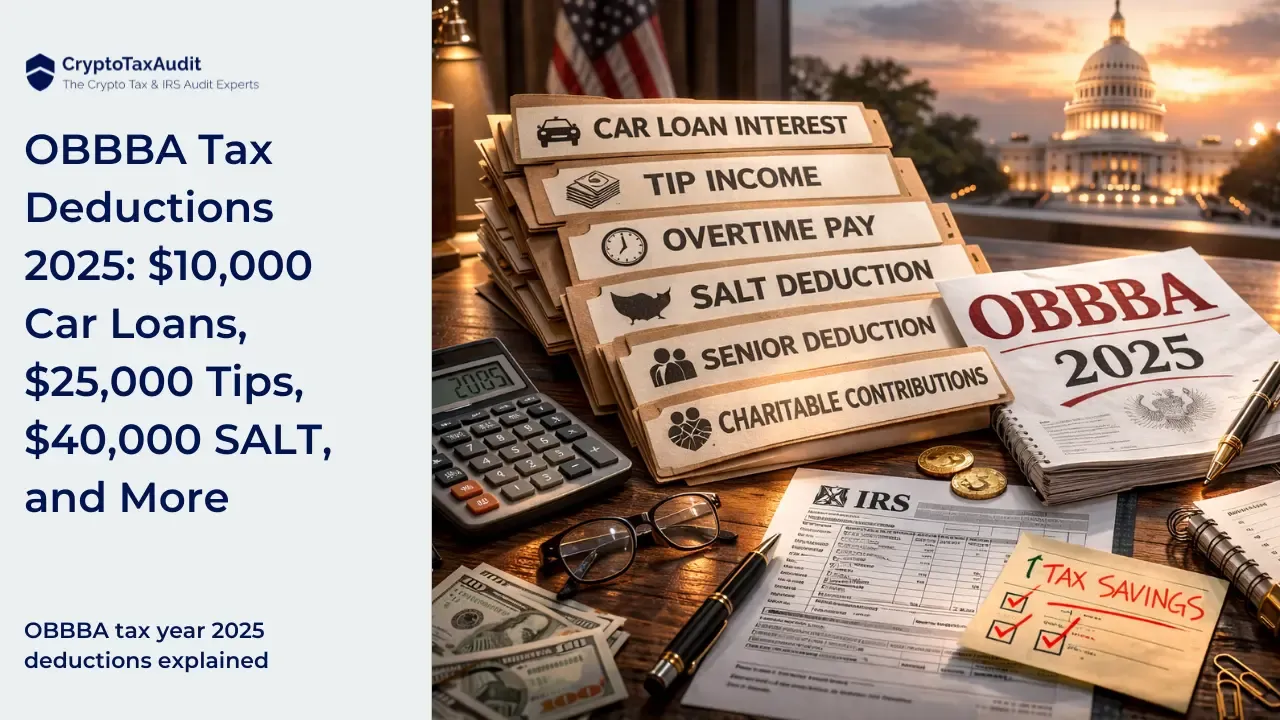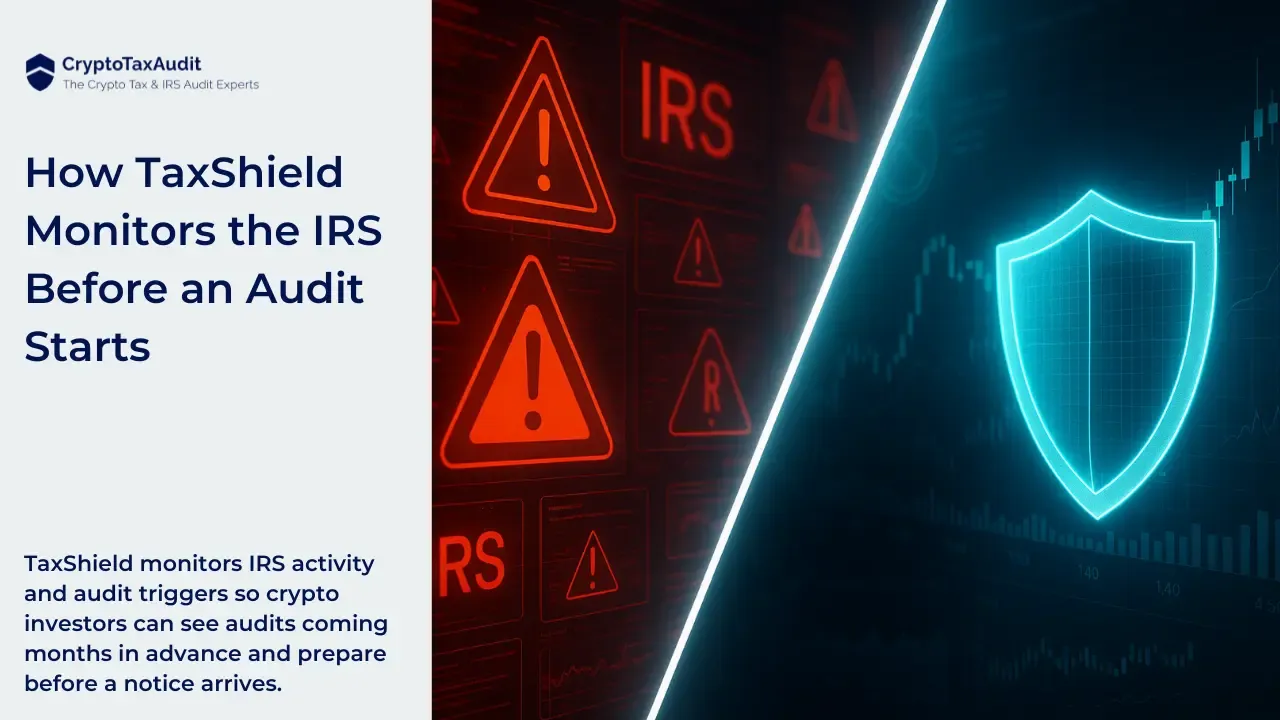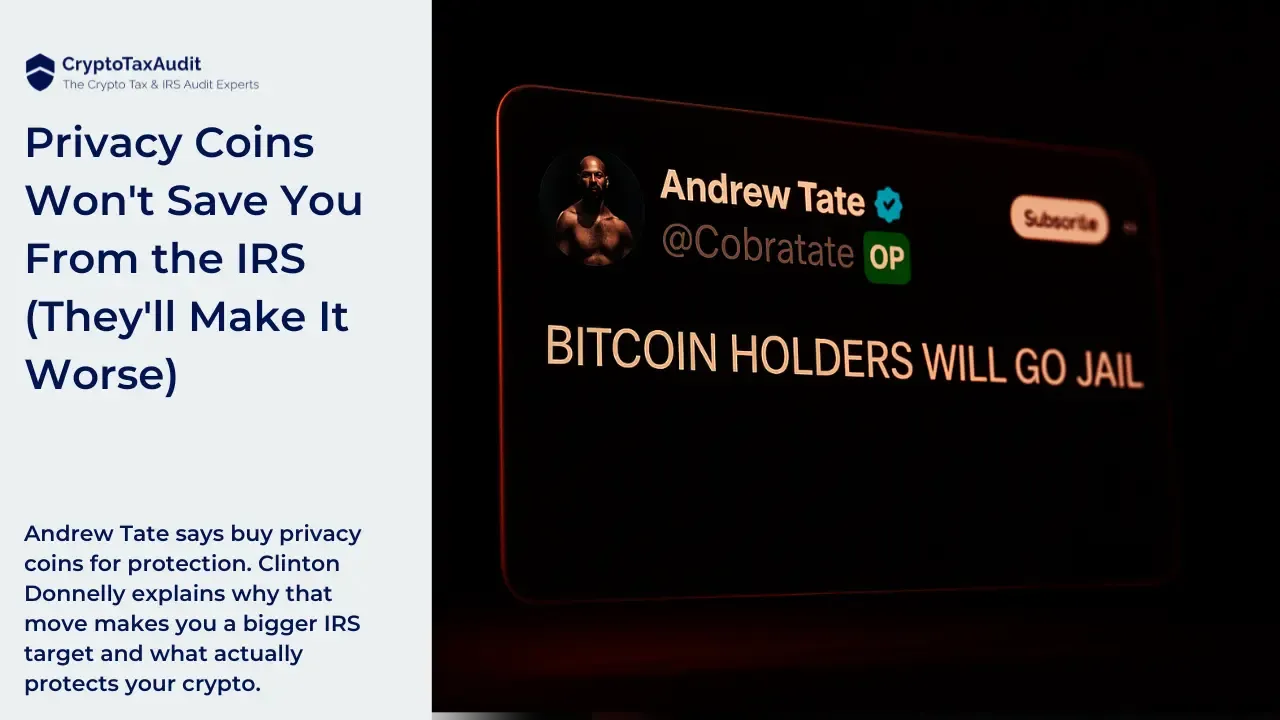
Why did the IRS wait until June 2021 to issue an opinion on the like-kind exchange treatment of cryptos. And, is like-kind tax treatment still valid before 2018?
Did you trade cryptos before 2018?
If you are a U.S. taxpayer who traded crypto in 2017 and before, you likely have interest and concerns regarding a recent IRS action. The IRS recently published Letter Ruling 202124008, which concludes that exchanges of Bitcoin, Ether, and Litecoin do not qualify for like-kind exchange under Section 1031.
What is Section 1031 and why is like-kind exchange so important?
Section 1031 has been in the tax code since 1921 to promote investment by deferring the taxation of gain when a property is exchanged for another property of like kind. The cost basis and holding period of the first property are transferred to become the cost basis of the second property.
Most U.S. crypto traders in 2017 believed crypto-to-crypto trades were not taxed. They thought only crypto-to-fiat trades would be taxed, based on Section 1031 of the tax code. Consequently, most crypto traders in 2017 never reported these trades on their taxes.
Congress changed Section 1031 so that it only applied to real estate transactions beginning in 2018.
Prior to 2018, tax professionals and traders were asking if like-kind exchanges applied to crypto trading. The IRS was silent on the subject. Then in June of 2021, they issued Letter Ruling 202124008, implying that crypto trades are not eligible for like-kind exchange treatment.
Many crypto traders are now asking if they can still claim like-kind exchange. That’s a good question.
What authority does a letter ruling have?
Not everything released by the IRS has the same authority under law. There is a hierarchy of legal importance. The tax law passed by Congress has the highest authority. Next comes formal IRS Regulations, Rulings, and Procedures. Beneath these authorities comes non-binding private letter rulings, technical memorandum, notices, and announcements.

What legal argument is raised for like-kind exchange?
The letter quotes Treasury regulations 1.1031-1(a)-1(b), “(b) Definition of “like-kind.” As used in section 1031(a), the words like kind have reference to the nature or character of the property and not to its grade or quality. One kind or class of property may not, under that section, be exchanged for property of a different kind or class.”
The letter ruling says Litecoin is different from Bitcoin and Ether because Bitcoin and Ether were used to buy and sell fiat and other currencies, implying that Litecoin could not be used this way. Specifically, the letter states:

The second claim by the letter is that Bitcoin was not of like-kind with Ether because Ether offered smart contracts. The letter states:

No other arguments were offered to justify the IRS’s opinion. Their position seems logical, but is it compelling?
What counter arguments can be raised for like-kind exchange?
The core legal issue comes from the regulation quoted earlier. Are the differences between the three cryptocurrencies one of “nature and character” or of “grade or quality”? The IRS claims the differences between Bitcoin and Ether are of “nature and character.” The argument against Litecoin is based upon popular usage during 2016-2017. Does popular usage constitute “nature and character” of a property?
How do we determine when a difference is one of “nature and character” or “quality and grade”? This is the crux of the issue.
Let us look again at the regulation 1.1031-1(a)-1(b) quoted by the IRS, but notice the third sentence that they omitted:

Here’s an example, raw land can be exchanged for an office building; a warehouse can be exchanged for retail property or a rental house for a Replacement Property Interest in a 300-unit apartment complex. If these significant differences are only differences of grade or quality, then perhaps the differences between Bitcoin, Ether, and Litecoin are only of grade or quality?
When the law was created in 1921, the investment landscape was much different than it is today. Advances in technology and intangible assets have forced the courts to stretch the laws to apply to new situations. The courts have generally been liberal in interpreting section 1031 because the purpose of the law by Congress was to promote investment.
The letter ruling denies like-kind exchange because the cryptocurrencies have some differences. The court ruled, “Section 1031 refers to property of a like – not an identical – kind. The comparison should be directed to ascertaining whether the taxpayer, in making the exchange, has used his property to acquire a new kind of asset or has merely exchanged it for an asset of like nature or character.” See Koch v. Commissioner, 71 T.C. 54, 65 (1978).
The letter ruling asserts, “an individual seeking to liquidate his or her holdings in a cryptocurrency other than Bitcoin or Ether, such as Litecoin, generally would need to exchange those holdings for Bitcoin or Ether first.” There are several problems with this claim.
Buying and selling Litecoin with U.S. dollars.
In 2017, Coinbase, the largest American exchange, allowed buying and selling Litecoin with U.S. dollars.
Today, Litecoin can be purchased with eleven fiat currencies.
Is it a matter of nature and character or popularity that caused Bitcoin and Ether more predominate? Popularity is a function of market capitalization, price stability, and the emergence of exchanges trying to avoid anti-money laundering rules on fiat transactions.
The letter ruling also asserts that because Ether could make smart contracts, it was not of like-kind with Bitcoin. On the surface, that sounds true, but it is not.
Most crypto traders are unaware that, from the beginning, Bitcoin supported contracts. Ether added some additional contract functions that popularized contracts. Wouldn’t these extra functions be a matter of “quality and grade” rather than “nature and character”?
IRS Notice 2014-21 defined cryptocurrencies to be property. Not just property, but they were virtual currencies. The IRS defined them as convertible virtual currencies, not just any virtual currencies because they were a store of value. With this Notice, the IRS concedes significant similarity (like-kindness) for all cryptocurrencies.
This article has only touched on some legal arguments and court cases supporting our opinion. We have done significant legal research not shown here.
The letter ruling’s arguments are not as compelling as they seem. They are weak and flimsy. Don’t assume that the IRS would go to court to defend it.
Why did the IRS wait until June 2021?
Serious questions are raised on why the IRS waited until June 2021 to issue an opinion on like-kind exchange treatment of cryptos.
The statute of limitations allows a taxpayer only three years to amend a tax return. Taxpayers are then unable to correct their return based on the letter ruling.
Taxpayers were clamoring for guidance since 2017; why offer it now when few can do anything about it?
Issuing the letter now only creates fear and uncertainty.
Early in 2021, the IRS Council’s office filed “John Doe” lawsuits against Kraken and Poloniex exchanges demanding taxpayer trading information for 2016-2020. Why did they wait until 2021 to go after this data when they went after Coinbase in 2016?
The statute of limitation also limits the IRS to three years to audit a tax return, unless they can show that the return underreported income by 25%, whereupon the audit statute is extended to six years. Taxpayers not reporting crypto-to-crypto trades in 2017 would be vulnerable to being audited. The IRS wants to deny like-kind treatment and tax all trades plus a 20% accuracy penalty plus significant interest (~50%).
The taxpayer’s best defense is to claim like-kind exchange. Could it be that the IRS Counsel’s office issued a flimsy private letter ruling as a scare tactic to terrify taxpayers into paying huge fines without attempting a defense?
Can crypto traders still claim like-kind exchanges?
We have helped taxpayers save tens of millions of dollars by claiming like-kind exchange for 2017 crypto trades. Many have amended their return to claim like-kind treatment where they had previously paid taxes.
We have already defended a trader in a formal audit of like-kind exchange of cryptos. Although the case hasn’t finished appeals, success looks strong. I intend to show that the IRS position is weak with a high chance of losing if taken to court.
If you receive an audit letter for 2017 crypto trades or earlier, our office can defend you and challenge the IRS authority and evidence to deprive you of your statute of limitations protections. We believe like-kind exchange is a powerful tool to defend taxpayers still.
DISCLAIMER: Opinions and perspectives of the author, host, and guests. It should not be construed as U.S. taxpayer advice. There are often multiple interpretations of tax law. Various strategies may be suited to specific individuals and for particular situations. Seek out professional tax, legal, or financial advice from CryptoTaxAudit or from other reputable companies.





